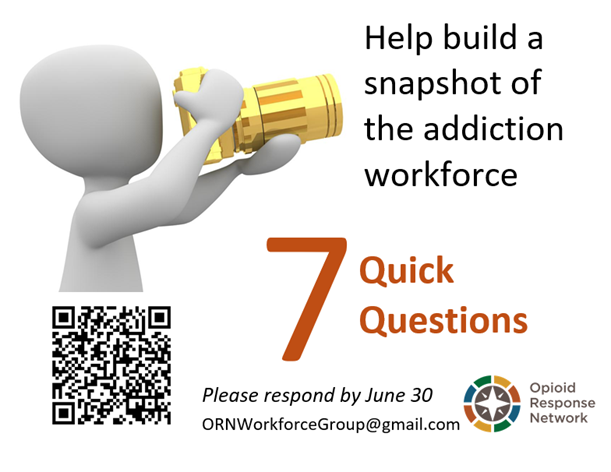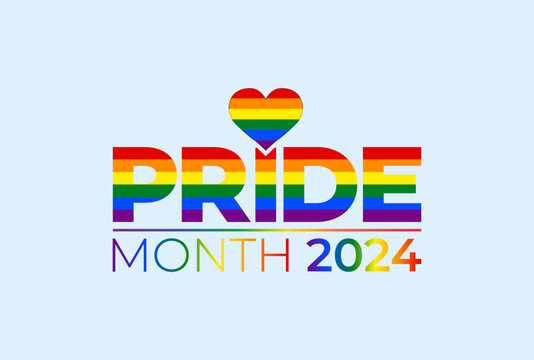Join the Northwest ATTC and speakers Bill O'Connell, EdD (UW Psychiatry) and Ursula Heflick (Spokane Fall Community College) for a webinar on August 28, 2024 (12-1pm PT) about an innovative new effort in Washington State to initiate a bachelor's-level Behavioral Health Support Specialist (BHSS) curriculum leading to credentialing to expand the mental health workforce and […]
Published: 07/23/2024
The New England ATTC is partnering with New Life Ministries II, Connecticut’s first Black-owned, faith-based, and peer-led recovery organization, to certify peers as Integrated Healing Facilitators (IHFs). IHFs are people who are in recovery and have been trained to use their life experiences as tools to assist individuals in all stages of their recovery. IHFs are […]
Published: 07/22/2024
The New England ATTC and New England Opioid Response Network(ORN) have joined forces to organize a three-part training series at Casa Esperanza. This series will focus on the connection between substance use and health disparities, aiming to enhance the workforce's ability to tackle health inequities through the use of inclusive language and practices. Leading this initiative will […]
Published: 07/17/2024
Relapse is a natural part of the recovery journey and can happen at any time of the year. The summer months can present a higher risk of relapse for some people in recovery, as celebrations like the 4th of July, weddings, graduations, and vacations can all introduce relapse triggers. For some clients with substance use […]
Published: 07/16/2024
A Syndemic Approach to Training and Technical Assistance in the Central East By Andrew Wilson, Co-Project Director Central East ATTC With World Hepatitis Day this month, we (the SAMHSA Region 3 ATTC) would like to highlight the interconnected health challenges that our communities face that has come to be known as a syndemic and collaborative […]
Published: 07/12/2024
The New England ATTC is proud to partner with the Health Education and Training Institute (HETI) in Portland, Maine to provide state-of-the-art training and technical assistance in Motivational Interviewing throughout the New England region. Through the ATTC subcontract, HETI has been collaborating with the Portland Recovery Community Center to train residents at the Maine Department of […]
Published: 07/11/2024
By recognizing and affirming the importance of Pride Month and using this time to reflect on how to better support LGBTQI+ people living with SUDs and other mental health disorders, everyone can contribute to increasing LGBTQI+ behavioral health equity and serving as effective allies to LGBTQI+ people in recovery. Reach out to your regional SAMHSA-funded […]
Published: 07/09/2024
New England ATTC Director Rosemarie A. Martin is taking part in SAMHSA’s 2024 Evidence-Based Practices Resources Center (EBPRC) Summit currently taking place in Rockville, MD (July 8-9th). In her role as an invited attendee, Dr. Martin, alongside over 60 federal and non-federal attendees, will guide the growth of SAMHSA’s EBPRC and ensure that the activities […]
Published: 07/09/2024
The 32nd Annual Annual Virtual New England School of Best Practices in Addiction Services will take place from August 26, 2024 – August 30, 2024. The late summer Best Practices 5-day event gives addiction and behavioral health professionals the opportunity for in-depth study of areas of special interest. The program includes offerings in advanced clinical […]
Published: 07/08/2024
SAMHSA is now accepting nominations for the SAMHSA Trailblazers in Advancing Recovery (STAR) Awards. The STAR Awards honor leaders in recovery with lived experience of mental health and/or substance use conditions including youth and family members whose lives have also been affected. In addition, the STAR Awards recognize organizations for exceptional efforts to promote recovery […]
Published: 06/28/2024
Join us on July 17th (12-1pm PT) for our next Northwest ATTC webinar, where experts Scott Boyles and Mat Roosa will teach us all about "ASAM Criteria Implementation and Science Based Implementation Strategies"! The collective struggle of healthcare systems to engage in timely and sustained implementation of the ASAM criteria and other EBPs has been […]
Published: 06/26/2024
Governor Janet Mills will host her 6th Annual Opioid Response Summit on Thursday, July 25, 2024 at Central Maine Community College in Auburn, Maine. The annual summit is part of the state’s commitment to fighting the opioid epidemic, and convenes leaders from around Maine and the Nation to share ideas, strategies, and best practices to […]
Published: 06/25/2024
The New England ATTC Co-Director, Dr. Sara Becker, has a Commentary out in Addiction titled, “Contingency Management Needs Implementation Science.” Dr. Becker was invited to contribute this commentary in recognition of her – and by extension the New England ATTC’s - reputation as a national leader in efforts to increase access to contingency management in […]
Published: 06/21/2024
In 2023 more than 112,000 people died of drug overdose in the US alone. Solving this major public health crisis requires action, collaboration, and an engaged community. Watch a solutions-oriented conversation moderated by Dean Jha with experts representing policy, people and communities, and medicine. Featuring: Dennis Bailer, Overdose Prevention Program Director, Project Weber / RENEW […]
Published: 06/21/2024
Join us for Trauma Informed Care in Unexpected Places (TICUP) our next topic on the Trauma Informed Caring Podcast, brought to you by the Mid-America Addiction Technology Transfer Center and funded by the Substance Abuse and Mental Health Services Administration. In this introductory episode, Andrea and Roxanne discuss themes from the upcoming season as well […]
Published: 06/18/2024
ICYMI: Read Part 1 of this 2-part blog series! Acute Stress Disorder (ASD) is a psychological response to a traumatic event that typically arises within a month of the experience. If untreated, ASD can evolve into Post-Traumatic Stress Disorder (PTSD). Additionally, individuals with PTSD are at an increased risk of developing substance use disorders (SUD), […]
Published: 06/12/2024
The majority of clients with substance use disorder (SUD) have a concurrent traumatic stress disorder (Mate, 2010). The traumatic stress disorder often precedes the SUD (Wright, 2022). Both disorders have unique triggers. The two disorders in combination can play off each other and lead persons with co-occurring disorders to slip through the cracks (Sanders, 2011). […]
Published: 06/11/2024

Mountain Plains ATTC is part of an Opioid Response Network (ORN) Addiction Workforce Interest Group. This group will be meeting to address factors contributing to the current workforce shortage. You can help us by responding to this 7 question inquiry to give us a snapshot of the current situation. We encourage you to pass the […]
Published: 06/06/2024
The New England ATTC, in partnership with the New England Association of Recovery Court Professionals (NEARCP) is providing this intensive technical assistance at the Incentives Camp on 6/28/24 from 8:30 pm to 4:40 pm with subject matter experts Helen Harberts, JD and Judge Diane Bull. The Incentives Camp is a one-day event designed to help […]
Published: 06/05/2024
Once upon a time in a bustling substance use disorders (SUD) treatment program in Chicago, there was a seasoned therapist named Keitha Bevly. She had been navigating the trenches of SUD treatment care for over a decade, armed with experience and a passion for helping. One day, a fresh-faced chemical dependency counselor named Jamelia was […]
Published: 06/05/2024
The Intersection of Addiction and Racism annotated bibliography is a collection of resources related to racism, anti-racism, and advancing health equity for Black, Indigenous, other People of Color, and other marginalized communities affected by unhealthy substance use and SUD/SUD treatment using a DEI (Diversity, Equity, and Inclusion) framework. It includes recent and classic/landmark papers on […]
Published: 06/04/2024

The links below provide resources and publications for clinicians, researchers, and other health professionals related to the health of Lesbian, Gay, Bisexual, Transgender and Queer/Questioning, Intersex, and Asexual (LGBTQIA+) individuals. These resources include information about training to help providers develop skills to deliver culturally-responsive and evidence-based treatment, recovery and prevention services for LGBTQIA+ populations dealing […]
Published: 06/03/2024
Join the Northwest and Pacific Southwest ATTCs and the Western States Node of the NIDA Clinical Trials Network for our next joint webinar on June 26, 2024 (11am-12:30pm PT)! In this session, presenters Rebecca Rossom, MD, MS, and Stephanie Hooker, PhD, MPH, will discuss the design and implementation of Opioid Wizard, a clinical decision support tool embedded in […]
Published: 05/31/2024
The Central ATTC supports and celebrates May as Asian American and Pacific Islander (AAPI) Heritage Month. This month we are happy to share the following article written for the Central East ATTC by Vishesh Agarwal, M.D. From Stigma to Support: Addressing SUD and Mental Health Needs in AAPI Populations “My daughter won’t be able to […]
Published: 05/16/2024

